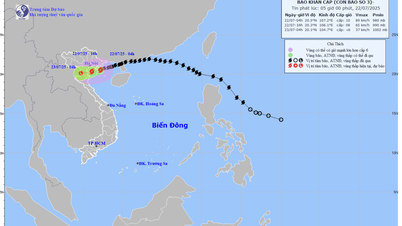 |
| Japan's economic growth lower than initially estimated. (Source: Reuters) |
The revised gross domestic product (GDP) data released recently showed that capital expenditure and private consumption both fell in the April-June period. This shows the “fragile” state of the Japanese economy.
Revised data showed that Japan's economy grew 4.8% in the second quarter of 2023, lower than the preliminary estimate of 6.0% and below the market forecast of 5.5%. At the same time, private consumption, which accounts for more than half of the economy, fell 0.6% from the previous quarter.
Japan's exports to China also fell 13.4% in July - the eighth consecutive month of decline.
Japan's exports fell 5.0% year-on-year in the first half of August after falling 0.3% in July, suggesting the global downturn is taking a toll on the economy.
Weak exports to China could make Japanese manufacturers cautious about investing, said Takeshi Minami, chief economist at Norinchukin Research Institute. He expects service-sector companies to pick up the slack, although sluggish consumption could also discourage investment.
Japan's economy is recovering slowly from the Covid-19 pandemic as rising living costs hamper global demand, clouding the country's growth outlook.
Faced with such uncertainties, Bank of Japan (BoJ) policymakers have been determined to maintain ultra-loose monetary policy to combat rising inflation.
The Yen exchange rate on September 7 fell to its lowest level since the beginning of the year. During the day, the exchange rate between the Yen and the USD was around 147 Yen to 1 USD.
Experts see the currency at risk of hitting last year's "bottom" of 151.94 Yen per USD.
The Japanese government has begun to step up intervention, with statements suggesting that it may intervene. But experts say the yen’s current weakness reflects the interest rate differential between Japan and other markets, making it difficult to prevent further depreciation of the yen in the near term.
One factor driving the selling of the Japanese currency is the widening interest rate gap between Japan and overseas markets.
The US non-manufacturing purchasing managers index for August, released by the Institute for Supply Management, showed that the index far exceeded market estimates. This would have been the basis for the possibility of pushing the US Federal Reserve (Fed) to raise interest rates, creating momentum for the Yen to sell off and buy USD.
Source





























![[Photo] National Assembly Chairman Tran Thanh Man visits Vietnamese Heroic Mother Ta Thi Tran](https://vphoto.vietnam.vn/thumb/1200x675/vietnam/resource/IMAGE/2025/7/20/765c0bd057dd44ad83ab89fe0255b783)










































































Comment (0)